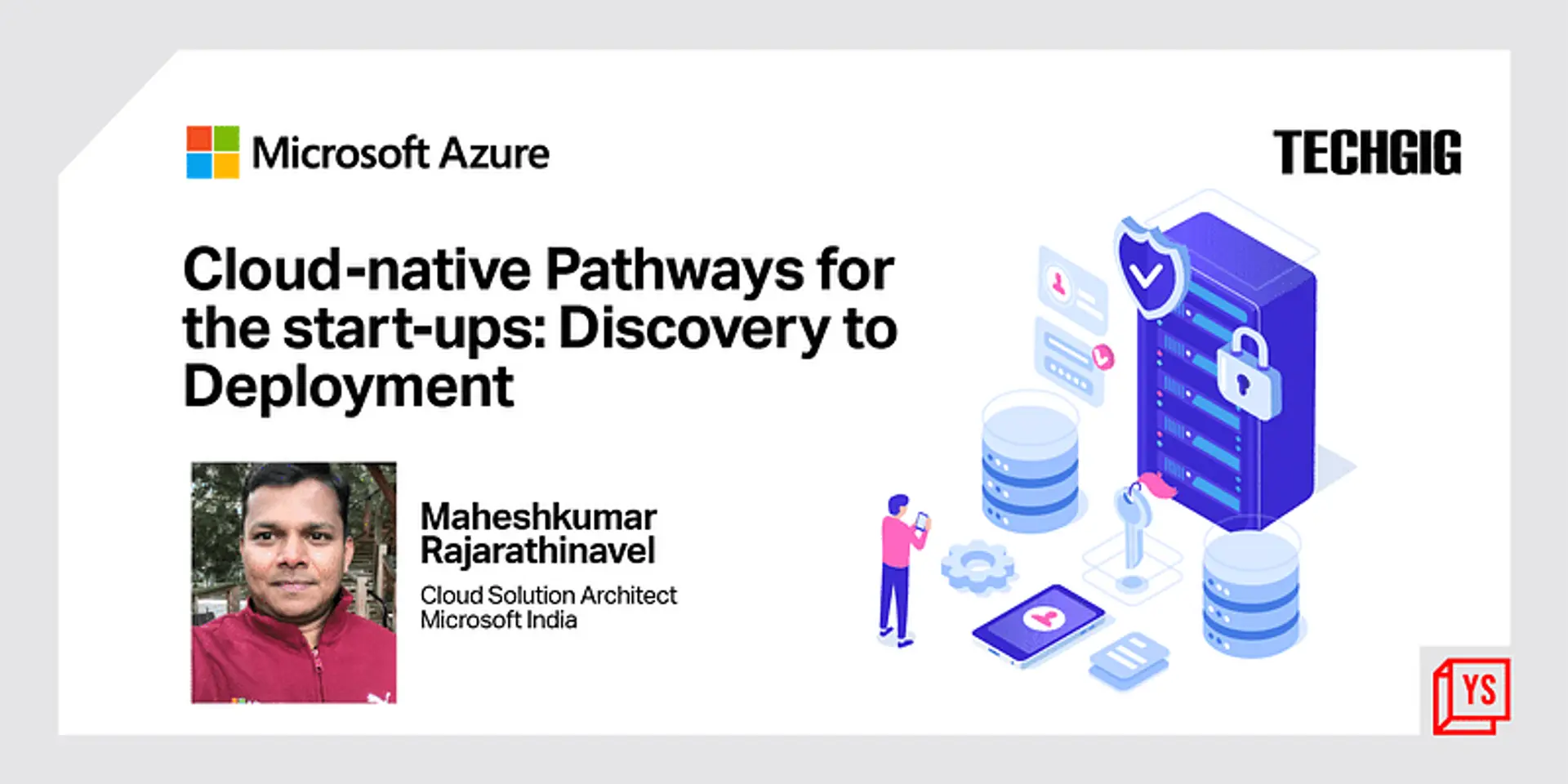
Microsoft Azure
View Brand PublisherMicrosoft’s masterclass decodes cloud-native pathways for startups
Microsoft’s recent webinar sheds light on how cloud-natives technologies can help startups take on business challenges.
Taking forward their commitment to further strengthen the startup ecosystem, Microsoft along with YourStory, hosted a webinar titled ‘Cloud-native pathways for startups: Discovery to deployment’. Conducted as a masterclass, the session was hosted by Maheshkumar R, Cloud Solution Architect, Microsoft India.
“In the last four or five years, we have seen it getting very aggressive and expanding in a way that it seems it [cloud] is going to displace the other way of creating a monolithic or maybe SaaS application,” remarked Mahesh while speaking about the cloud-native technologies that are enabling agility, thereby providing businesses with competitive advantage in the quickest time possible.
Empowering startups
Cloud-native technologies empower organisations to build and run scalable applications in modern, dynamic environments such as public, private and hybrid clouds. Combined with robust automation, these techniques allow engineers to make high-impact changes frequently and predictably with minimum toil.
With a huge amount of companies and certified manpower invested in helping users to innovate as much as possible in this space, startups now have almost a clean slate in front of them to create something from scratch and build resilient and manageable cloud native applications without any hiccups.
Kubernetes: The de facto container orchestrator
With 88 percent of enterprises using or adopting Kubernetes, it has become the default acronym for cloud-native. Kubernetes are not portable and extensible, but also self-healing due to tools such as auto-restart, auto-placement, auto-reapplication, and auto-scaling.
74 percent of enterprises that use Kubernetes are running workloads in production. At least 20 percent of enterprises that use Kubernetes leverage six different open-source security tools. “Even the small scale customers are driving into Kubernetes. This is actually the path forward,” said Mahesh.
Startups may get tempted to start something with Kubernetes on their own by putting together all the Kubernetes clusters. However, when they start loading with a production workload, the challenges around the right production containers become very huge and this is where managed Kubernetes come into play. “The challenges in building this whole tool are complex. It is time consuming, there is no single point of contact in respect to support or innovation, helping you achieve your business goals. That's why managed Kubernetes are always recommended for startups,” added Mahesh.
Changing landscape
Microsoft Cloud is developer friendly, and has a great tie up with the production. It has been put in a format where you enter in one place and yet always have a greater collaboration with the other side. With the recent acquisition with GitHub things are happening in a format where the developer is checking your code to GitHub repo, the operator running in the Kubernetes is always looking for changes to the code, and pulling the changes and then burn the container, redeploying and replacing itself.
Microsoft Visual studio, Microsoft Azure, Power Apps, and GitHub are some of the most comprehensive developer tools and cloud enabling app innovations.
Microsoft’s vision for innovation focuses on building new, intelligent cloud-native apps, modernising existing applications, scaling through fusion teams and standardising with DevOps. Predicted results show a 4-5x revenue growth, 55 percent rise in innovation and 74 percent decrease in app development costs.
Way forward
Microsoft has also come up with its own version of building an intelligent cloud wherein you can actually infuse the artificial intelligence into your application, with fully managed data analytics and insights. Another thing to look forward to would be to develop securely and collaboratively for cloud, where the developer could collaborate, ship and code from anywhere.
According to industry predictions, 90 percent of apps will be cloud native by the year 2025. “Either you will be producing the container or consuming the container, but I'm sure this container will be kind of a disease no one can escape from,” said Mahesh, signing off.







